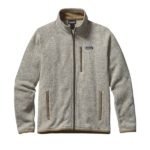If you build a new house or think for building container office in New York, it will be properly sealed and extremely well insulated. Also, it’ll be keeping you warm and snug without having to worry about frozen water pipes.
However, if you have not yet constructed your lovely new home with us, you may find yourself in an older house. It is drafty or has less insulation than you really need to get through those cold January evenings.
Learn how to prevent ice and snow damage and how to prepare your older house for a harsh freeze. So, before you look for a security guard booth for sale, let’s know the tips.
How to Prepare Your Home for a Freeze

Preventive maintenance is usually preferable to damage remediation. If you watch the weather and know a storm is on its way, make sure you take the necessary measures. It is advisable to prepare your home for ice weather by following the procedures below.
Allow the Faucets to Drip Slowly
Because water expands when it freezes, moisture in your pipes frequently expands and bursts when left alone in cold weather. To avoid this, keep both hot and cold water on a moderate trickle. This is from every faucet in your home. The movement of the water prevents it from freezing.
Open the Cabinet Doors to Depiction Pipes
Open any cabinet (or ordinary) doors that conceal the pipes beneath your sinks as an extra precaution. This permits your home’s heat to “thaw out” the pipes and keep moisture from freezing.
Prepare to Switch off Your Water Supply (Or Disconnect Hoses)
If your pipes do freeze, turn off the water immediately and unhook any outdoor water hoses. Extra water output is the last thing you want to deal with if your pipes rupture.
If you’re going to be out of town during the freeze and don’t want your faucets to drip slowly, unplug all of your water lines. This will assist you in preparing your home for a freeze while you are gone.
Keep the Furnace Running
It is critical to keep your heat on in cold weather for various reasons. First and foremost, if you lose electricity, you want your home to have as much heat as possible until it can repair.
Second, the cold affects your systems and your pipes, and the increased heat gives some protection against the cold’s weapons. Furthermore, as previously said, the furnace plays a significant part in preventing your interior pipes from freezing.
Remember that having your furnace professionally examined before the season gets too cold is a smart idea. This helps to avoid inconvenient breakdowns in subzero temperatures.
Seal All Of Your Doors And Windows
Condensation will build up inside your home if your doors or windows allow drafts. And it will then refreeze. Unfortunately, if left alone, this can cause the windows or sliding doors to freeze shut. To prevent drafts in your home, utilize rubber seals or an extra layer of insulation.
Clear Out Your Gutters
Cleaning your gutters shortly before a strong frost is the greatest time to do it. If they have clogged with twigs, mud, and debris, the ice or snow will freeze.
They’ll cause the gutter to become exceedingly heavy. As a result, the gutter may fracture or crack, bringing you a post-storm headache.













